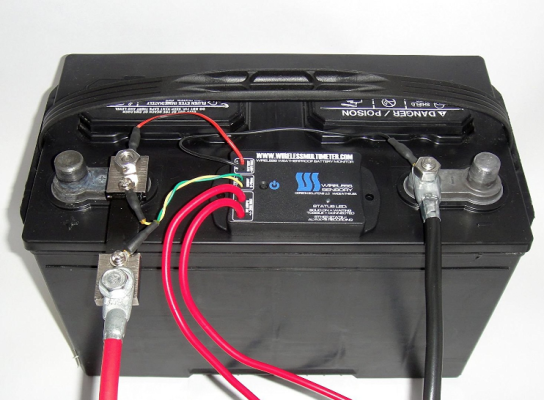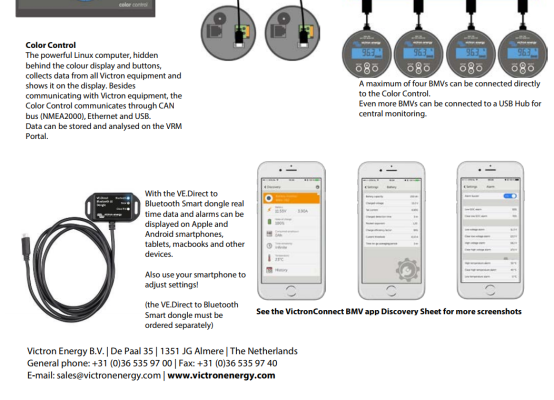markopolo-ClassB
Senior Member
RV Battery Life Expectancy
By Mark Polk
The life expectancy of your RV batteries depends on you. How they’re used, how well they’re maintained, how they’re discharged, how they’re re-charged, and how they are stored all contribute to a batteries life span. A battery cycle is one complete discharge from 100% down to about 50% and then re-charged back to 100%.
One important factor to battery life is how deep the battery is cycled each time. If the battery is discharged to 50% everyday it will last twice as long as it would if it’s cycled to 80%. Keep this in mind when you consider a battery’s amp hour rating. The amp hour rating is really cut in half because you don’t want to completely discharge the battery before recharging it. The life expectancy depends on how soon a discharged battery is recharged. The sooner it is recharged the better.
What does all of this mean to you? That depends on how you use your RV. If most of your camping is done where you’re plugged into an electrical source then your main concern is just too properly maintain your deep cycle batteries. But if you really like to get away from it all and you do some serious dry-camping you’ll want the highest amp hour capacities you can fit on your RV.
Deep cycle batteries come in all different sizes. Some are designated by group size, like Group 24, 27 and 31. Basically the larger the battery the more amp hours you get. Depending on your needs and the amount of space you have available, there are several options when it comes to batteries. You can use one 12-volt Group 24 deep cycle battery that provides 70 to 85 amp hours or you can use two or more 12-volt batteries wired in parallel. Parallel wiring increases amp hours but not voltage.
If you have the room you can do what a lot of RVers do and switch from the standard 12-volt batteries to two of the larger 6-volt golf cart batteries. These pairs of 6-volt batteries need to be wired in series to produce the required 12-volts. Series wiring increases voltage but not amp hours. If this still doesn’t satisfy your requirements you can build larger battery banks using four 6-volt batteries wired in series/parallel that will give you 12-volts and double your AH capacity.
Happy Camping,
Mark
Copyright 2006 by Mark J. Polk owner of RV Education 101
RV Expert Mark Polk, seen on TV, is the producer & host of America's most highly regarded series of DVD's, videos, books, and e-books. http://www.rveducation101.com/
Mark Polk is a retired U.S. Army Chief Warrant Officer Three, specializing in wheeled and track vehicle fleet maintenance operations. In addition to owning and operating RV Education 101, (based in North Carolina) since 1999, Polk also has a very extensive RV background working in RV service, sales and management. Polk has a degree in Industrial Management Technology and his 30 plus years of experience in maintenance includes working as an RV technician, a wheeled vehicle and power generation mechanic, an automotive maintenance technician, Battalion and Brigade level Maintenance Officer, an RV sales manager and also in the RV financing department as the Finance & Insurance manager. http://www.rveducation101.com/
Article Source: http://EzineArticles.com/?expert=Mark_Polk
By Mark Polk
The life expectancy of your RV batteries depends on you. How they’re used, how well they’re maintained, how they’re discharged, how they’re re-charged, and how they are stored all contribute to a batteries life span. A battery cycle is one complete discharge from 100% down to about 50% and then re-charged back to 100%.
One important factor to battery life is how deep the battery is cycled each time. If the battery is discharged to 50% everyday it will last twice as long as it would if it’s cycled to 80%. Keep this in mind when you consider a battery’s amp hour rating. The amp hour rating is really cut in half because you don’t want to completely discharge the battery before recharging it. The life expectancy depends on how soon a discharged battery is recharged. The sooner it is recharged the better.
What does all of this mean to you? That depends on how you use your RV. If most of your camping is done where you’re plugged into an electrical source then your main concern is just too properly maintain your deep cycle batteries. But if you really like to get away from it all and you do some serious dry-camping you’ll want the highest amp hour capacities you can fit on your RV.
Deep cycle batteries come in all different sizes. Some are designated by group size, like Group 24, 27 and 31. Basically the larger the battery the more amp hours you get. Depending on your needs and the amount of space you have available, there are several options when it comes to batteries. You can use one 12-volt Group 24 deep cycle battery that provides 70 to 85 amp hours or you can use two or more 12-volt batteries wired in parallel. Parallel wiring increases amp hours but not voltage.
If you have the room you can do what a lot of RVers do and switch from the standard 12-volt batteries to two of the larger 6-volt golf cart batteries. These pairs of 6-volt batteries need to be wired in series to produce the required 12-volts. Series wiring increases voltage but not amp hours. If this still doesn’t satisfy your requirements you can build larger battery banks using four 6-volt batteries wired in series/parallel that will give you 12-volts and double your AH capacity.
Happy Camping,
Mark
Copyright 2006 by Mark J. Polk owner of RV Education 101
RV Expert Mark Polk, seen on TV, is the producer & host of America's most highly regarded series of DVD's, videos, books, and e-books. http://www.rveducation101.com/
Mark Polk is a retired U.S. Army Chief Warrant Officer Three, specializing in wheeled and track vehicle fleet maintenance operations. In addition to owning and operating RV Education 101, (based in North Carolina) since 1999, Polk also has a very extensive RV background working in RV service, sales and management. Polk has a degree in Industrial Management Technology and his 30 plus years of experience in maintenance includes working as an RV technician, a wheeled vehicle and power generation mechanic, an automotive maintenance technician, Battalion and Brigade level Maintenance Officer, an RV sales manager and also in the RV financing department as the Finance & Insurance manager. http://www.rveducation101.com/
Article Source: http://EzineArticles.com/?expert=Mark_Polk



